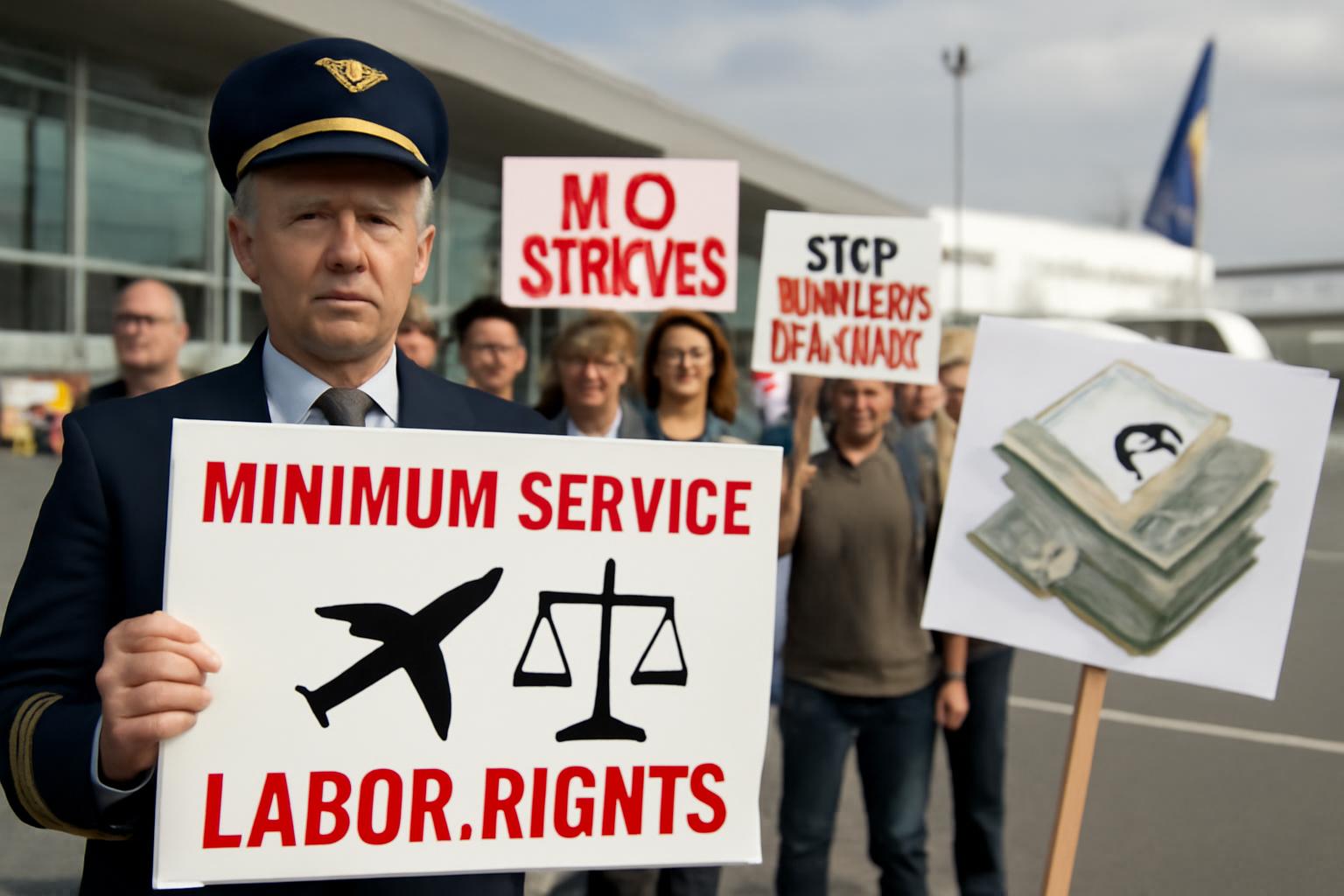A wave of disruption hangs over Spain’s aviation system as ground staff at Azul Handling, Ryanair’s Spanish subsidiary, announces walkouts across Madrid, Barcelona, Malaga and Palma de Mallorca. The strikes, organized by the UGT union, will occur every Wednesday, Friday and on weekends in three three-hour blocks per day, threatening services through to year’s end and affecting millions of travelers. In response, the government has mandated minimum service levels, requiring international Ryanair flights to operate at roughly 60 percent capacity in August and ensuring no delays for medical transports. Ryanair maintains that the minimums will blunt any real impact, while the union argues that repeated violations of workers’ rights and precarious working conditions lie at the root of the action. Travelers are urged to verify flight statuses before departure. Separately, consumer advocates push that charges for larger carry-on baggage breach EU law.
There is a depth of principle beneath these headlines that demands we look beyond the surface of immediate inconvenience. The dispute showcases the clash between the everyday reality of human labor and the impulse to steer vast networks of exchange from above. When a union seeks to press claims for fairer conditions, it matters not only to the workers involved but to the rhythm of a whole economy that depends on predictable, voluntary cooperation among myriad participants. Yet the state’s response—a blanket minimum-service mandate—reads as a reminder that attempts to engineer outcomes in a complex, evolving system inevitably distort incentives, misallocate resources, and transfer the burden of adjustment onto the very customers who are least equipped to bear it.
The impulse to guarantee a continuous stream of flights by fiat rests on a conviction that coordination can be tightened by rulemaking rather than by the slow, iterative process of bargaining, experimentation, and reallocation. But a genuine market order is a scaffold of general rules, not a cosmos of micro-management. The knowledge required to specify what “minimum service” means in every temporal moment, at every station, across a fragmented and changing network, resides in dispersed localities—within firms, among workers, in the courts, in contract and discipline—and cannot be conjured from central fiat without misreading the realities on the ground. When the state steps in as arbiter of capacity, it introduces pressure for obedience that may suppress genuine concerns about working conditions and, paradoxically, weaken the very resilience the network needs to absorb turbulence.
Labor disputes, however discomfiting, are in their essence signals about the operation of a system whose vitality depends on the freedom of employers and employees to negotiate under the rule of law. The union’s emphasis on precarious conditions is a legitimate critique of how modern service work is contracted and organized, often with flexibility that shifts risk away from the enterprise and onto the worker. Yet the remedy is not to recast the exchange through compulsory specifications of output, but to strengthen the institutions that allow fair bargaining, enforce transparent contracts, and deter coercive practices—while leaving room for voluntary measures that align wages, conditions and productivity. A thriving economy does not eliminate discontent; it channels it through institutions capable of learning and adapting, not through top-down dictates that narrow the space for experiment and initiative.
The casualty of such interventions, if pushed too far, is always information. Prices, wages, hours, and productivity convey the dispersed knowledge of countless decisions across time and place. When the state imposes rigid proportions of service, it risks distorting those signals, delaying necessary adjustments, and provoking unintended consequences elsewhere in the economy. The right response to revelations about labor conditions is to reinforce the rule of law, protect the right to contract and to organize, ensure fair and enforceable terms, and rely on competition and consumer sovereignty to discipline both prices and practices. If airlines must adapt to a changing world, the mechanism is not coercive mandates but credible, accountable institutions that balance rights, responsibilities, and the realities of cost and demand.
Turning to the matter of carry-on baggage charges, the claim that such fees breach EU law reinforces a broader truth: consumer protection and fair competition are best served by clear, principled, and consistently applied rules rather than ad hoc restraints or price controls imposed by authorities who presume to know what every traveler ought to pay. The market’s transparency—what a service costs, what it includes, when charges apply—depends on robust, predictable law that enables informed choices. When policy steps beyond general principles and into granular price settings, it corrodes the capacity for individuals to respond to real costs and real value.
If there is a takeaway worth holding onto, it is this: a free society’s economy thrives when the price of disorder is paid peacefully through voluntary adjustment rather than coerced coexistence with inefficient rules. Let workers’ rights be robustly protected within a framework of clear contracts and strong institutions. Let firms respond to real costs, incentives, and signals, not to the dictates of a central planner’s appetite for control. Let consumers benefit from transparent pricing and competition that rewards efficiency and penalizes exploitation. In such a system, strikes and sporadic disruptions are not the end of order, but the rough edges of a living process by which society learns how to balance freedom with solidarity, and individuals with the collective demands of modern aviation.
